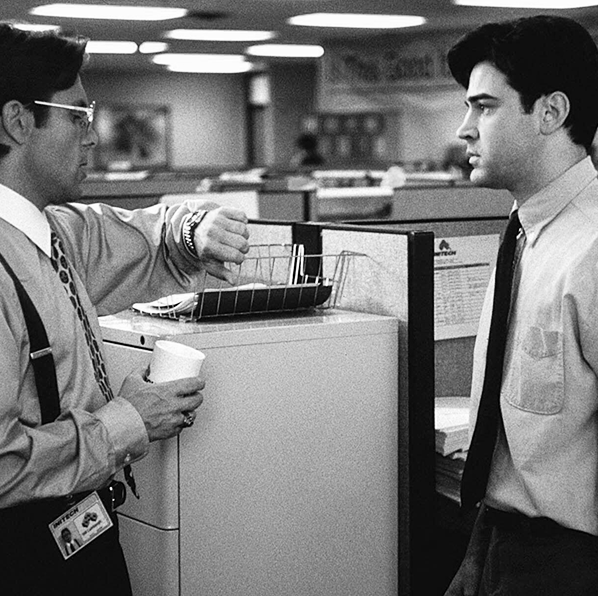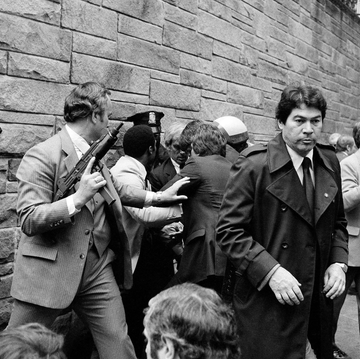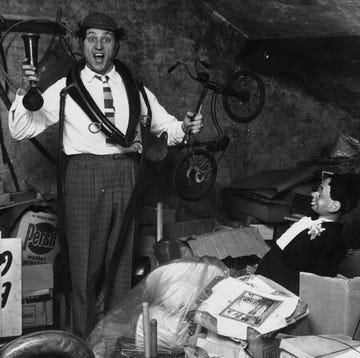In my mid-twenties I woke up from a seven-year hangover sat in an office. Apparently, I was an administrator. I was working at a software start-up, having tried catering, a corner shop, advertising, the job centre, an internship at Zoo magazine, background acting in a Jude Law movie, flyering, marketing and, through it all, writing fiction. In hindsight, I was asking the world to tell me who I am. In reply, my manager at the start-up asked me, “Have you checked your Slack?”
I swivelled to my left. “No,” I said, opening the tab. On Slack my manager had sent me a message asking, “Have you checked your Asana?” I hadn’t checked Asana either. I opened up another tab. On Asana, a task-management system, my manager had assigned me the task “catch up”. I swivelled left again. “What did you want to catch up about?”
Felix was not an obvious object of pity. He was a recent millionaire in his late-twenties, the bad-cop half of the two-man management team that ran our janky software start-up out of a windowless room in an old factory near The Shacklewell Arms in Dalston. He’d gone to an international school in Hong Kong for 14 years without learning a word of Cantonese. To burn calories, he chewed ice all day. His short black hair, Huel T-shirt and chinos gave him an anonymous AI-generated look. The prompt would have been “make tech person”.
This tech person was waylaid, the victim of a middling university, the high cost of admission to Silicon Valley and an offbeat business partner. The office was carpeted in computer cables and decorated with dying cacti. Still, Felix might have been happy in his factory for a time had his business partner not adopted an amusing Wolf of Wall Street recruitment policy: employing a revolving cast of 12 friends as administrators. It was menial work with no prospects. Consequently, the company doubled up as a kind of crèche for all of the unemployed alcoholics the business partner knew from Goldsmiths University. He was Dalston’s Jordan Belfort; we were irony-pilled twentysomethings hoping to succeed as writers, musicians, actors, or — in the most delusional case — as a philosopher. Fleeing adulthood, we were drawn to the work because it was so low-skilled that nobody could have expected us to take it seriously — giving us time to await our careers in philosophy. We called ourselves “the elite clickers”. The elite clickers struggled to arrive at 10, clicked numbers in spreadsheets for eight hours, and then at exactly six played the closing theme from Only Fools and Horses to announce the daily exit for The Shacklewell Arms.
The staff tended to laugh over Felix whenever he stood and yelled “please shut up”. Informally, there were about 10 cigarette breaks a day, but those who didn’t smoke would just Juul at their desks, ensuring conversation was kept steady. The conversation that annoyed Felix the most was the one about what music to play. The argument eventually resolved itself with the use of a digital wheel that had all the employees’ names on. After an album finished, the wheel was spun and the winner chose what to play next: generally something unpleasant, ironic and ill-fitting for a tiny windowless office, such as Scooter’s happy hardcore cover of “The Logical Song”. Supertramp’s original was about the joys of childhood giving way to the mundane logic of jobs and obligations; Scooter’s version was a terrifying window into the German conception of pleasure. It amped the staff up so much that they gathered around the wheel to clap and chant as it spun on the screen, to add more theatre to the selection and inevitable high-pitched howl of “when I was young it seemed that life was so wonderful”.
Felix soon grew depressed watching his employees fist-pump to Scooter. With “The Logical Song” pounding behind him, he pleaded with the elite clickers to treat the workplace less like a bar. “This,”said the tech person, “is not a stag do.” Meanwhile, the elite clickers had ordered a physical wheel, five-feet wide, to install in the corner of the office. As we stood to applaud the winner of each spin, I did sometimes glimpse Felix, sitting in silence, torturedly assigning us tasks on Asana. These were the first stirrings of my pity. As the vape smoke billowed past his screen, Scooter booming again, I supposed he had sunk too much money into the company to disentangle himself. He had never expected to employ people so soon, and had probably been caught off guard by the mob amassing in his office, seemingly overnight. It was now too late to dislodge us. He couldn’t fire anyone because rehiring took too long for a job so unrewarding. Also, he would have had to fire everyone because everyone was fist-pumping. Moreover, these drunks were the friends of his business partner. And shockingly, through all the shouting and drinking, these drunks did work. We made an astonishing amount of money for the tech person, only we did it dancing to a different tune — “The Logical Song”.
The extended mix was particularly tough on Felix. I often saw him downing a couple of paracetamol as the throbbing rose, but some schoolboy logic told me we couldn’t get in trouble for how we worked, so long as we did work. Felix disagreed. Things finally came to a head one morning, when he walked in and announced he was, “banning talking”. “In... general?” one colleague asked, as I turned the Scooter down. “But what if we need to talk about work?” asked another.
In fairness to Felix, he was right not to take this question seriously. He answered that if we needed to talk about work we should do it via Slack. So, via Slack, we discussed how to point out the stupidity of his new policy, deciding to switch the music off too, to make the silence ridiculously loud. Soon after, I received a Slack from Felix telling me to start playing music again, as the atmosphere was embarrassing for the new employee — the first he had ever hired: a baffled Greek man in his late-thirties. It was his first day. Via Slack, the team and I focus-grouped various options before choosing a YouTube video of Victorian factory sounds, with the clanging metal filling the void for about an hour until we replaced it with the soundtrack to Schindler’s List. Obviously, Felix felt this was quite childish. He Slacked me to announce that sad music was now also banned. After this, we played excessively happy music for a few hours. While no one spoke,“Walking On Sunshine” blared on repeat at a volume loud enough for the adjoining office to begin banging on the wall, begging for it to be turned down. It wasn’t, and finally Felix broke the talking ban to ask me, “Have you checked your Slack?”
The catch-up was on the roof of the building. He chose it as there were no private spaces in the office and music made talking impossible. He climbed the four flights first. I followed, woozy from Juuling on the way, and found him at the ledge, gazing Gatsby-like at Canary Wharf. The sky was a perfect blue. “Hey man,” he said, turning to offer me a fist-bump. “Thank you for coming.” He told me he wanted my help. “They listen to you,” he sighed. “If you tell them to stop with the wheel and the shouting, they will. I rely on you. I think you’re an amazing worker. I’m sorry I’ve not told you that before, but...” — he tried to smile — “I didn’t want you to think I was gay.”
I didn’t know what to say. After the meeting, nothing changed — but I did. Felix banned conspicuously happy music, precipitating hours of ironic Eno. As I sat there puffing thoughtfully on my Juul, the ambient soundscapes making me feel increasingly like I was in a psychiatric facility, I realised that I no longer saw Felix as the Victorian factory owner, demanding total silence from his workers. At last, I did pity him: this tech person whose relationship with work was so confused, so erotic, he had imagined “nice job” to be “Hey, sailor!”
In time, he figured out how to automate most of the clicking and to outsource whatever he couldn’t to cheaper workers in the Philippines. He let everyone go, except for the three most depressed employees: me and two other mid-functioning alcoholics, kept around for three wheelless years while our use was slowly eroded. He replaced the empty desks with gym equipment. Older, I’d look back on the younger, drunker me singing lyrics neither he nor Scooter had ever understood and wonder if in Felix my pity had been misdirected. He was the only one who had seen an end coming.
This piece appears in the Winter 2023 issue of Esquire.













